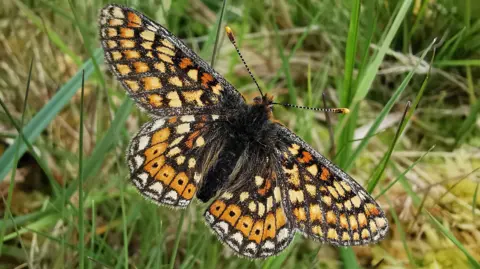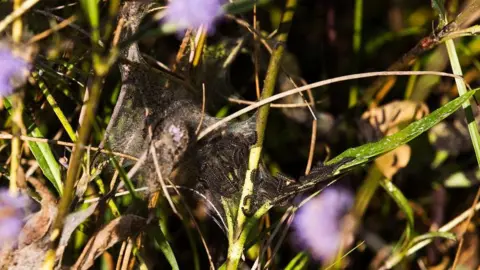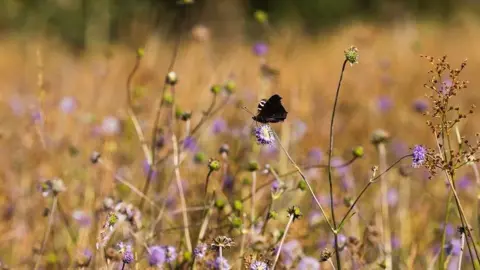Landowners urged to help save rare butterfly
 Mark Williamson Photography
Mark Williamson PhotographyFarmers and landowners have been urged to help identify a plant crucial to the survival of one of Britain's rarest butterflies.
The marsh fritillary butterfly was declared extinct in Cumbria in 2004 due to the loss of wet grasslands.
But last summer they were rediscovered in meadows at Swindale Valley, part of Wild Haweswater, thanks to conservation work.
Landowners in the Lowther and Eden Valley have been asked to look out for the plant devil's bit scabious, which caterpillars rely on for food.
Cumbria Connect, a collaboration backed by £4.1m funding from the Endangered Landscapes & Seascapes Programme to restore nature across eastern Cumbria, wants to map where the plant is already growing and then fill in the gaps by planting it in new areas.
 Mark Williamson Photography
Mark Williamson PhotographyIn 2023 the RSPB at Wild Haweswater found 23 webs belonging to marsh fritillary caterpillars, but this year they have discovered 101.
Grazing by fell ponies and cattle is said to be crucial to the survival of the little purple plants to ensure ground stays compact enough to allow light to reach down to the leaves.
In Swindale Valley, "careful grazing" has been a key part of the marsh fritillary's resurgence.
 Mark Williamson Photography
Mark Williamson PhotographyAnnabelle Kennedy, senior farm and conservation advisor at Cumbria Connect, said the butterflies "depend entirely on the right habitat to survive".
"The more areas of devil's bit scabious we can create, the greater the chance we have of seeing these beautiful creatures thrive once again."
Follow BBC Cumbria on X, Facebook, Nextdoor and Instagram. Send your story ideas to [email protected].
